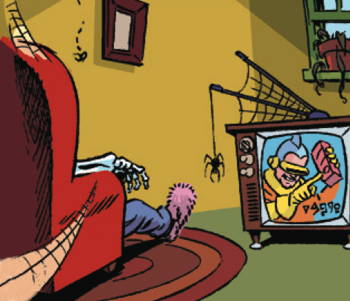January 2021
January 11, 2021
Stockpiling toilet paper - 1993
July 1993: A pro-timber group urged consumers to stockpile toilet paper in order to deplete store supplies and thereby raise awareness of the importance of wood and paper products. "You can help by buying one or two (or twenty!) cases of toilet paper," its newsletter declared.Little did they know that, 27 years later, a pandemic would transform America into a nation of toilet paper stockpilers!

Longview Daily News - July 15, 1993
Posted By: Alex - Mon Jan 11, 2021 -
Comments (3)
Category: Bathrooms, 1990s
Father Christmas Training School
It's still kinda the holiday season, right? Orthodox Xmas was just a few days ago!
Posted By: Paul - Mon Jan 11, 2021 -
Comments (0)
Category: Holidays, School, United Kingdom
January 10, 2021
Predicting war by mathematics
At an August 1938 meeting of the British Association for the Advancement of Science, Professor Lewis F. Richardson attempted to use mathematics to predict the likelihood of war:He concluded there was "no chance of war," which proved to be a somewhat inaccurate prediction.
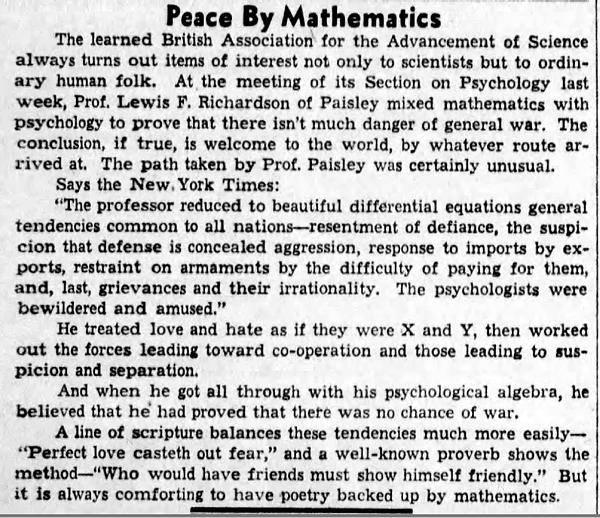
The Alexandria Town Talk - Sep 27, 1938
Encyclopedia.com offers some more info on what Richardson was up to:
Despite the eccentricity of his mathematical war-prediction model, Richardson was apparently quite influential in the history of mathematics. Wikipedia notes that he did pioneering work in mathematical techniques of weather forecasting, as well as in the study of fractals.
Posted By: Alex - Sun Jan 10, 2021 -
Comments (8)
Category: Science, War, 1930s
The Aeolus Wind Car Competition
The event got cancelled in 2020, but plans to resume this year.Forty seconds of narration in French preface this second video.
Posted By: Paul - Sun Jan 10, 2021 -
Comments (2)
Category: Contests, Races and Other Competitions, Technology, Environmentalism and Ecology, Cars
January 9, 2021
Henry Budd, the Anti-Mustache Millionaire
English eccentric Henry Budd stipulated in his will that his sons would forfeit their inheritance if they ever grew a mustache. Details from twickenhampark.co.uk:The newspapers reported this in some detail at the time, and it was still worthy of news 20 years later in 1882.
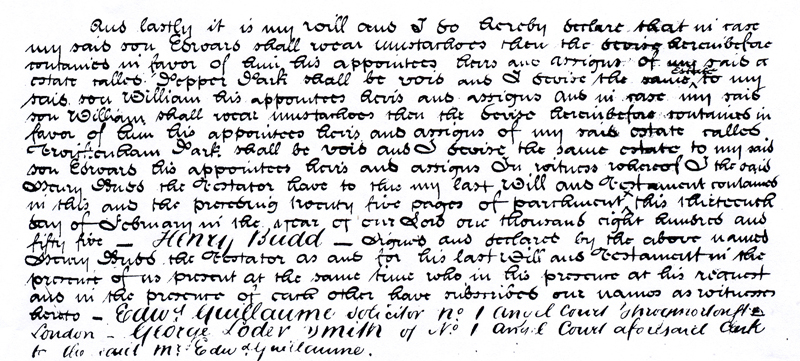
Detail from Budd's will in which he forbids his sons from ever growing mustaches
Posted By: Alex - Sat Jan 09, 2021 -
Comments (4)
Category: Law, Nineteenth Century, Hair and Hairstyling
Lisa Bufano, Revisited
Nine years ago, we did a post on this artist. Revisiting her, I learned that two years afterwards, she had a sad ending by suicide.Other videos here.
Posted By: Paul - Sat Jan 09, 2021 -
Comments (0)
Category: Art, Avant Garde, Dance, Differently Abled, Handicapped, Challenged, and Otherwise Atypical
January 8, 2021
Mystery Gadget 91
What's going on here?The answer is at the source.
Or after the jump.
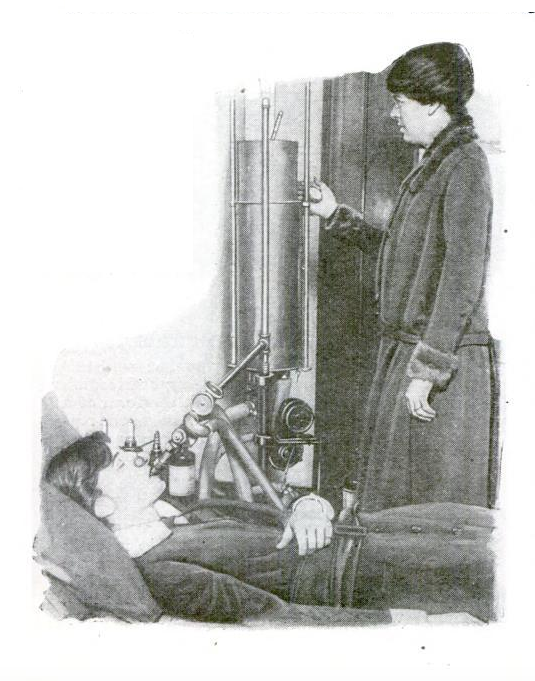
More in extended >>
Posted By: Paul - Fri Jan 08, 2021 -
Comments (3)
Category: Technology, 1920s
January 7, 2021
Donald Campbell, the man who couldn’t stop talking
In 1933, Donald Campbell, a truck driver, fell from his truck and hit his head. A year later he developed a bizarre condition. He started talking incessantly, non-stop. His talking was so compulsive that he couldn't even sleep. His talking was perfectly rational. He answered questions clearly. But he couldn't stop.Doctors attributed his condition to encephalitis, or brain swelling. After about a month his non-stop talking subsided, and doctors thought he had recovered. But within four months he was dead. Strangely, the cause of his death was cancer and seemed to be unrelated to his non-stop talking.
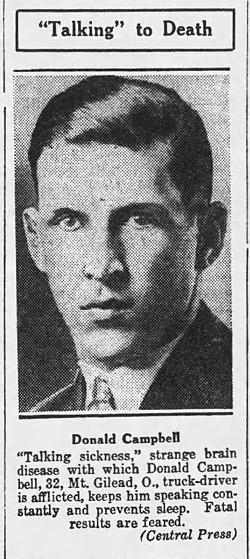
Pottsville Evening Herald - Aug 17, 1934

Pittsburgh Press - Sep 5, 1934

Cincinnati Enquirer - Jan 6, 1935
Update — A newspaper recorded an example of some of Campbell's rambling monologue:
Posted By: Alex - Thu Jan 07, 2021 -
Comments (4)
Category: Health, Mental Health and Insanity, 1930s
Fore-Edge Painted Books
An article with examples here.
Posted By: Paul - Thu Jan 07, 2021 -
Comments (2)
Category: Art, Magic and Illusions and Sleight of Hand, Books
January 6, 2021
Samsara Perfume
Samsara the perfume was created by Jean Paul Guerlain in 1989, and it's still for sale. Here's Guerlain's publicity blurb about the perfume:I'm no expert on Hindu-Buddhist religion, but I'm pretty sure that Samsara isn't supposed to be a good thing. My understanding is that it's the endless, repeating cycle of birth and death from which we're supposed to hope to awake. Kind of like the endless cycle that Bill Murray's character, in the movie Groundhog Day, finds himself trapped in. Which makes it odd to name a perfume after this.
Of course, I'm over-analyzing this. Guerlain probably a) didn't understand the concept, and b) wouldn't have cared anyway because he just figured the name sounded exotic.
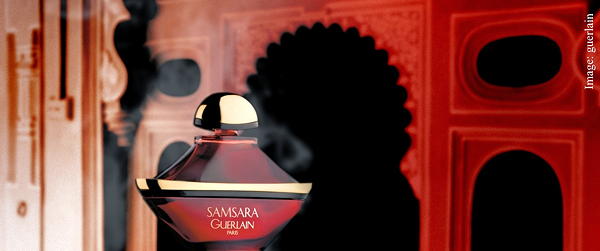
Posted By: Alex - Wed Jan 06, 2021 -
Comments (2)
Category: Religion, Perfume and Cologne and Other Scents
| Get WU Posts by Email | |
|---|---|

| Who We Are |
|---|
| Alex Boese Alex is the creator and curator of the Museum of Hoaxes. He's also the author of various weird, non-fiction books such as Elephants on Acid. Paul Di Filippo Paul has been paid to put weird ideas into fictional form for over thirty years, in his career as a noted science fiction writer. He has recently begun blogging on many curious topics with three fellow writers at The Inferior 4+1. Chuck Shepherd Chuck is the purveyor of News of the Weird, the syndicated column which for decades has set the gold-standard for reporting on oddities and the bizarre. Our banner was drawn by the legendary underground cartoonist Rick Altergott. Contact Us |
